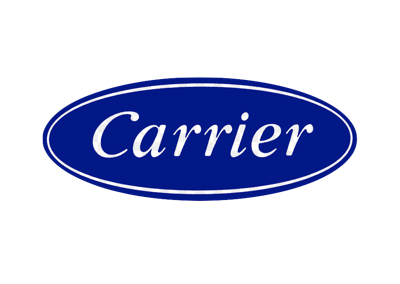
Easy ways you can improve Air Quality in your home or business
Reduce indoor allergens that can trigger respiratory problems and other issues.
It may feel cozy being sealed in tight against the cold in your home during the chillier months of the year, but for people who are sensitive to indoor allergens or have respiratory problems, winter can exacerbate problems. Stale indoor air and heating systems can increase the amount of allergy-inducing dust mites, pet dander, and mold spores circulating through your house. In late winter and early spring, it may still be too chilly to throw open the windows to pull out the musty air, so while you await the warmer weather it's important to be aware of some of the allergy and respiratory triggers that may be lurking in your surroundings.
"Most of the things that cause problems are odorless," says Dr. Nicholas BuSaba, associate professor of otolaryngology at Harvard Medical School. "So, in many cases there's nothing to alert you to the problem." That is, there's nothing other than the symptoms these allergens can trigger — such as respiratory problems (including asthma flare-ups), fatigue and sleepiness, or even digestive issues.
Indoor air quality tends to be worse in the winter months because there is often no flow of fresh air from the outside, meaning allergens stay trapped inside.
Improving air quality
Making an effort to improve indoor air quality can help you avoid asthma flare-ups and allergy symptoms and keep you breathing easy through the colder months.
While it's probably not possible to eliminate all the allergens inside your home, you can reduce the number — and your exposure to them — by making some simple changes. Here are some strategies you can use to improve air quality inside your home and hopefully improve your allergy symptoms.
Protect yourself from the damage of chronic inflammation.
Science has proven that chronic, low-grade inflammation can turn into a silent killer that contributes to cardiovascular disease, cancer, type 2 diabetes and other conditions. Get simple tips to fight inflammation and stay healthy -- from Harvard Medical School experts.
While some plants are touted as helping to improve indoor air quality because they release oxygen, they are still allergy triggers for many people. "On balance, they create more problems than they help," he says.
Change your filters. If you have a forced-air heating system, be certain to change the filters regularly, says Dr. BuSaba. Electrostatic filters can help ensure that dust and other airborne irritants get trapped instead of being recirculated throughout your home.
Also consider having your ducts cleaned to remove trapped dust. This may not always be advisable, but it helps in some cases. The Environmental Protection Agency offers advice on making this decision at /iaq.
Invest in an air purifier. If you're allergic to indoor allergens and can't control the source of the problem — for example, you're unwilling to give up your family pet — it may help to use an air purifier, says Dr. BuSaba. Placed in the most commonly used areas of the house, these devices, in particular ionic purifiers, can help capture some of the irritants that may trigger your symptoms. You're probably not going to be able to remove these allergens completely, but you can cut down on them, which may help the problem.
Also consider a dehumidifier in damp areas, such as a basement, to help prevent the growth of mold. Ensure that bathrooms, another potential source of mold, are well ventilated as well and scrub off any visible mold that collects in the shower, on fixtures, or walls.
Let the fresh air in. Even in the cold months, open windows from time to time to allow fresh air to move into the house. Also, move potential air contaminants out by using fans in the kitchen to remove cooking fumes.
Disclaimer:
As a service to our readers, Harvard Health Publishing provides access to our library of archived content. Please note the date of last review or update on all articles.
No content on this site, regardless of date, should ever be used as a substitute for direct medical advice from your doctor or other qualified clinician.
Article provided by Harvard Medical School (See their Disclaimer)
ADDRESS
4348 Durham Road, Kintnersville, PA. 18930
PHONE NUMBER
267-733-8848
E-MAIL ADDRESS
pureairemechanical@gmail.com
Contractors #
PA176560
Please fill out this form with a brief description of possible issues, problems or service you may need and we will get back to you with a quick response.
contact



Copyright © 2022 PureAire Mechanical LLC - All rights reserved